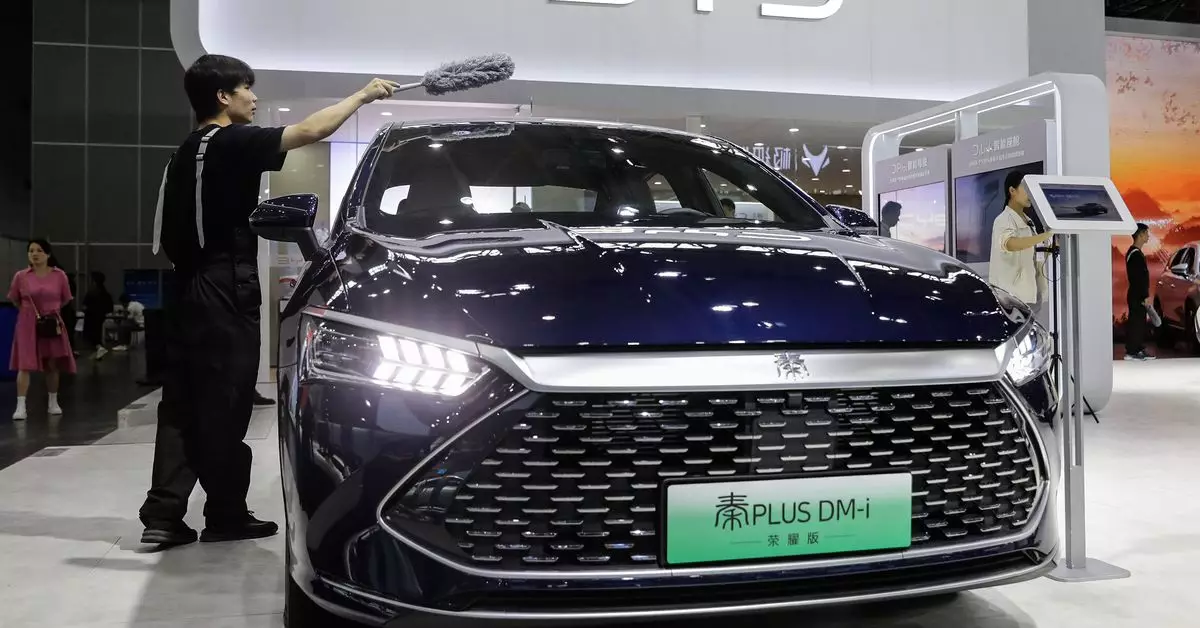As the electric vehicle (EV) market continues to rapidly evolve, the intersection of technology, trade, and national security is becoming increasingly salient. Recent proposals from the Biden administration highlight this very intersection with a focus on controlling connected vehicle software that originates from “countries of concern,” chiefly China. By blocking the sale or import of such software, the administration aims to safeguard national security, while also exerting pressure on the domestic auto industry to minimize its reliance on foreign technology. This article explores the implications of these proposed regulations for American automakers, consumers, and international relations.
The primary motivation behind the proposed rules centers on the perceived risks associated with vehicles embedded with Chinese hardware and software. According to a White House statement, these vehicles pose an “acute” threat that could enable foreign adversaries to engage in acts of sabotage—like remotely disabling vehicles while they’re in use. This scenario illustrates a critical concern in an era where technology intertwines with everyday life, further raising the stakes for cybersecurity in automotive design.
Moreover, the potential for surveillance through onboard technologies—ranging from cameras to sensors—factors heavily into the administration’s rationale. Such technologies could be manipulated to gather sensitive data on American citizens, infrastructure, and other critical information, raising alarm bells about privacy and security. This analysis indicates that the government’s interventions are not only about maintaining a competitive edge but also about responsible governance in an increasingly interconnected world.
The Regulatory Framework: Scope and Timeline
The proposed regulations introduce specific timelines for compliance. The software ban is set to take effect for model year 2027, while hardware prohibitions will roll out by model year 2030. This phased approach provides automakers with a timeline to assess and adapt their supply chains, yet it also poses challenges, particularly for companies that have already integrated Chinese technologies.
The implications for American manufacturers are multi-faceted. On one hand, the ban could spur domestic innovation and encourage the development of proprietary technologies. On the other, it could burden companies that rely on existing partnerships with Chinese manufacturers, potentially leading to increased production costs and delayed timelines for new models—a critical aspect given the rapid pace of EV adoption.
Layered atop these regulations are new tariffs imposed on Chinese imports, which have escalated tensions in an already fraught trade relationship. The Biden administration has instituted significant tariffs on electric vehicles and critical battery components, all aimed at making these products less competitive in the U.S. market. As China rapidly boosts its export capabilities and solidifies its status as the leading auto exporter, these measures could inadvertently hinder American competitiveness in the global automotive sector.
For example, Chinese manufacturers like BYD are producing budget-friendly EV models that offer an attractive cost-to-performance ratio, exemplified by the BYD Seagull, which boasts an affordable price point without sacrificing range. The 100 percent tariff that could be applied to such vehicles may still leave them markedly cheaper than domestic options. This dissonance raises an important question: will these tariffs protect American jobs, or will they stifle innovation and choice in the marketplace?
Industry Perspectives: Divergence in Opinion
The proposed regulations have elicited mixed reactions from industry leaders. While the Autonomous Vehicle Industry Association commended the shift towards robust national security measures, individual automakers express concerns over the potential long-term impacts on competitiveness and profitability. Notably, influential figures like Elon Musk have voiced contrasting opinions, oscillating between support and skepticism regarding tariffs.
This divergence denotes a broader theme in the automotive sector where national security interests clash with the push for free, globalized trade. Domestic manufacturers face a delicate balancing act as they navigate regulatory changes while striving to remain competitive amidst rapidly improving technologies and shifting consumer preferences.
As the Biden administration sets forth new regulations aimed at safeguarding national security, the complexities of the global automotive market become increasingly pronounced. The proposed bans on Chinese software and hardware bring forth new dynamics in international relations, concerns about privacy and surveillance, as well as challenges for American manufacturers determined to retain their global competitiveness.
Ultimately, today’s decisions will shape the landscape of the automotive industry for years to come. The challenges are manifold, but they also present opportunities for innovation and leadership in a crucial sector poised to shape the future of transportation. As the U.S. forges ahead, the resolution of these issues may have far-reaching consequences that extend beyond the confines of national borders—impacting consumers, businesses, and the environment alike.


Leave a Reply